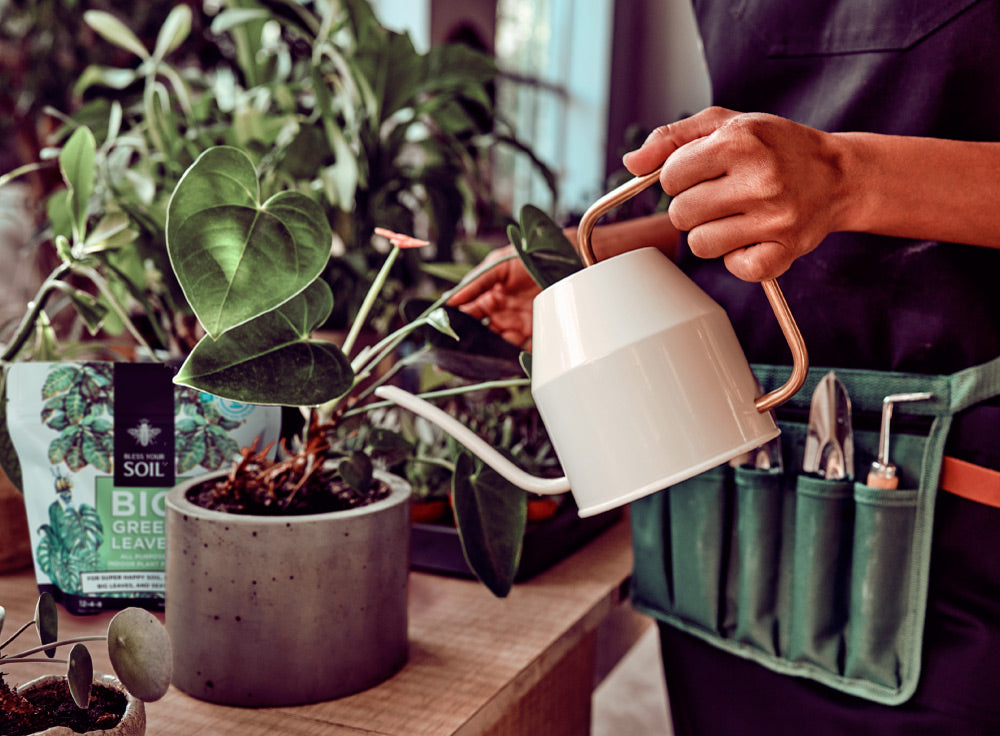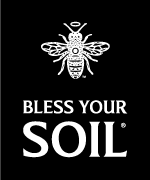
Jump to:
- Why Plant Fertilizers Are Essential Indoors
- Light First, Fertilizer Second
- Nitrogen—Leafy Plants’ Best Friend
- Why Mixing Fertilizers Can Backfire
- How Often to Fertilize Houseplants
- Organic vs. Fast‑Acting Fertilizers
- Busting the Banana‑Water (& Coffee‑Ground) Myth
Ever wonder how to fertilize plants so they grow big and bright? Here’s the science: the leaves are the part of the plant that makes the food (sugars) by photosynthesis, but the minerals we call “plant fertilizers” or "plant food" keep that engine running. So, is plant food the same as fertilizer? Technically no—but in everyday language, we use the terms interchangeably. Either way, a well‑timed nutrient boost is the plant parent’s secret weapon.

1. Fertilizers: Essential Plant Supplement for Indoor Plants
Outdoor soil naturally replenishes nutrients, but potting mixes in indoor plant containers do not. Within months, container soil is depleted, which is why plant fertilizers are crucial indoors. Without it, houseplant leaves will start to yellow, look dull, or not grow to full size. A single scoop of Big Green Leaves® plant food at each watering replaces what your potted friends are missing, supporting lush leaves and strong roots.
2. Lighting Matters—Fertilizer Can’t Replace It
No amount of nutrients will save a plant in the dark. Always correct lighting first, then feed. Otherwise, fertilizer salts can accumulate and burn roots.

3. Nitrogen: The Leafy Plant’s Best Friend
For monsteras, figs, and other big leaf indoor plants, high‑nitrogen plant fertilizers (first number in "N‑P‑K") fuel vigorous foliage. Our hybrid formula in Big Green Leaves® was designed exactly for that purpose.
4. Don’t Mix Your Fertilizers
Blending different brands can throw nutrients out of balance, conflict, or risk burn. Stick to one complete formula—or adjust dosage, never the recipe.
5. How Often to Fertilize Houseplants
During the active season (spring–summer), feed most plants every 2–4 weeks depended on their need for water; in fall–winter, scale back to once every 6–8 weeks. In short: how often to fertilize indoor plants depends on light, temperature, and the species’ growth rate.
For more watering tips, see How Often Should I Water My Houseplants?
6. Organic vs. Fast‑Acting Fertilizers
Organic fertilizers enrich the soil but break down slowly—great outdoors, hit‑or‑miss indoors. Mineral‑derived formulas act fast yet can overwhelm if overused. Bless Your Soil® hybrid plant foods supply quick‑release, naturally sourced minerals plus organic biological inputs for balanced, burn‑free results. Dive deeper in our blog post Organic vs. Synthetic Fertilizer: Myths & Truths.
7. Busting the Banana‑Water (& Coffee‑Ground) Myth
Banana water smells funky and lacks a complete nutrient profile. If you don't mind your house smelling like bananas and the possibility of a nasty gnat infestation, try making the ever-so-viral banana tea.
What about coffee as a fertilizer, you ask? Is coffee a good fertilizer for plants? Not really—its acidity and uneven nitrogen release can do more harm than good. Stick with thoughtfully formulated fertilizers for predictable results.
The Takeaway
If you like having lush, green indoor plants, use an indoor plant food fertilizer every time your water them.
Shop Plant Fertilizers Now
“Five‑star product! My monstera doubled in size.” — Jenna M.




